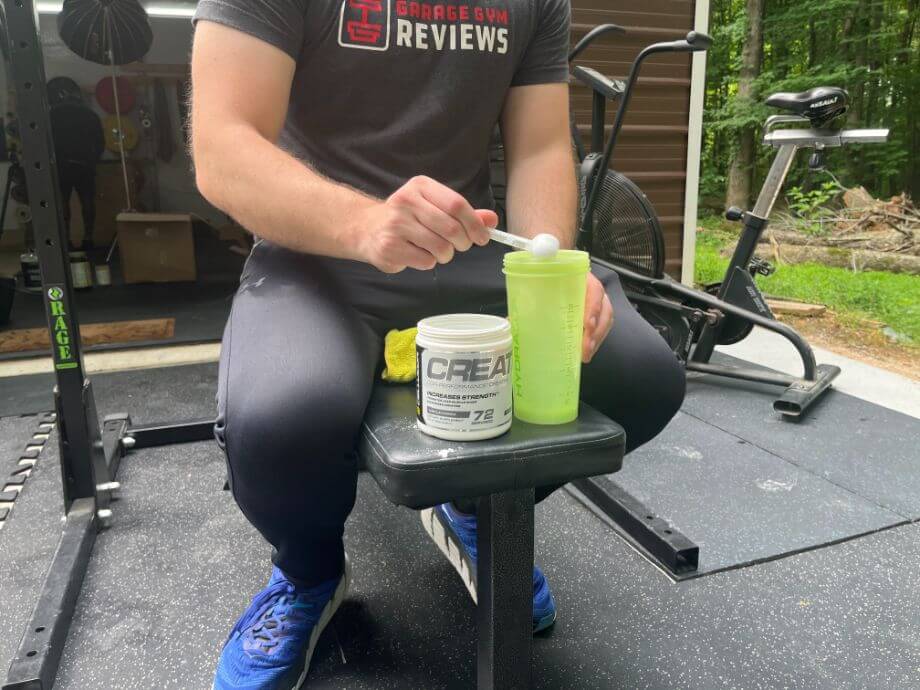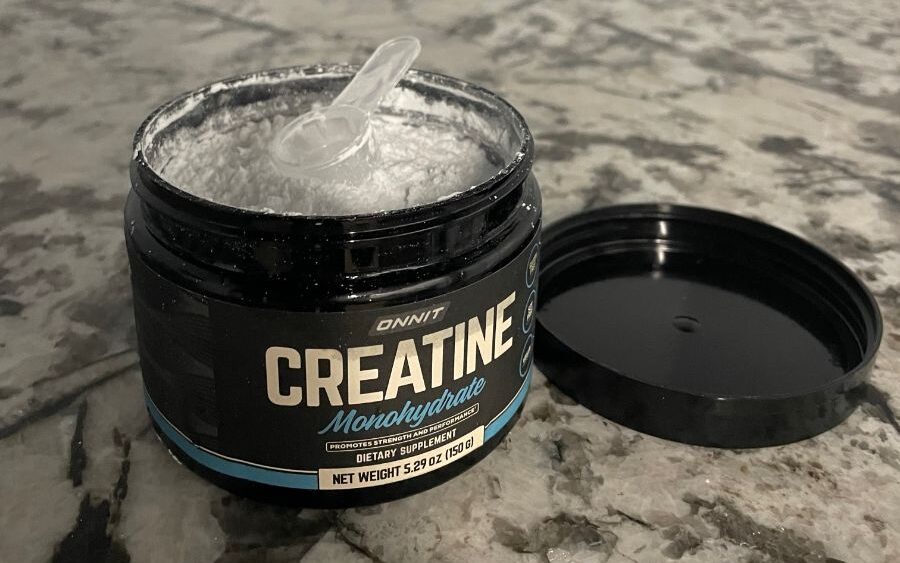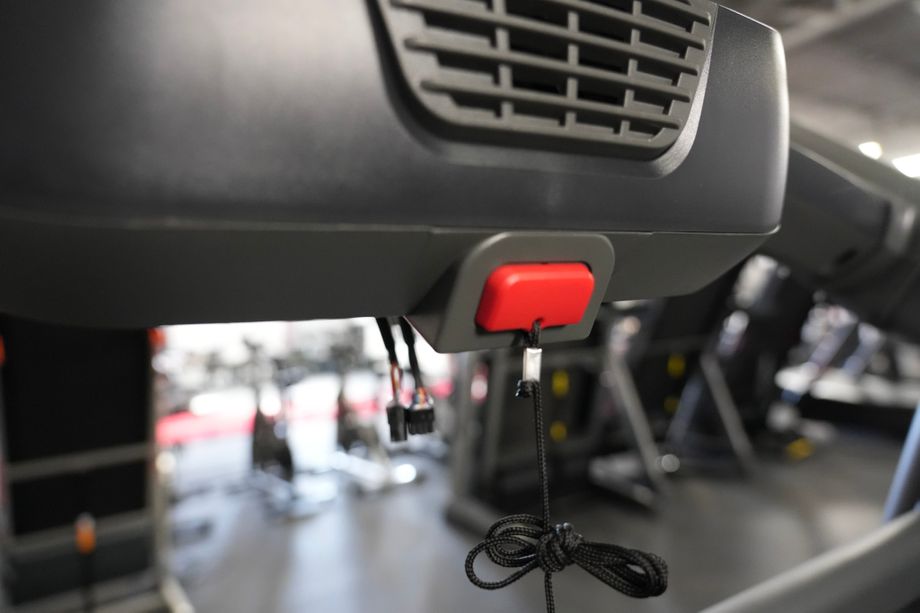Creatine is an amino acid that is produced naturally in the body and can be found in foods like eggs, red meat, or seafood. Creatine supplements have become one of the most popular products in the sports nutrition market today because they help saturate the muscles with this compound more effectively than consuming it from natural sources. However, bodybuilders and recreational athletes alike may have heard the rumor and wonder, “does creatine cause acne?” It’s right up there with the question, “does creatine cause hair loss?” or the myth that it is only effective for men.
RELATED: Best Creatine for Women
However, is this fear misplaced? Are people avoiding taking a legitimately useful supplement like creatine just to maintain their clear skin? With a dietary supplement that is such a staple in the sports nutrition world, we felt it was imperative for us to weigh in and put this concern to rest.
Medical disclaimer: This article is intended for educational and informational purposes only. It is not intended as a substitute for medical advice. For health advice, contact a licensed healthcare provider.
Creatine and Acne Breakouts
Let’s cut to the chase. Despite this being a rumor for some time, there is no form of creatine that causes acne breakouts and there is no scientific evidence to back the misconception. However, there are some reasons why people still believe that there is a link between creatine consumption and pimples.
For one, some people mistakenly believe that creatine is an anabolic steroid because both have a proven ability to stimulate muscle growth. Dihydrotestosterone, or DHT, is a popular anabolic steroid that has been associated with “steroid acne.” Yes, this is actually a thing.
However, it’s not just an increase in DHT levels that can cause an outbreak of pimples. Medications like prednisone, which are in a class of medicines called corticosteroids that are used to reduce inflammation in patients who have experienced traumatic injury, surgery, or other conditions, have been shown to cause acne.

While there is no solid scientific evidence that tells us why “steroid acne” occurs, the overwhelming consistency of anecdotal evidence has left no doubt to medical professionals that there is a link. It’s possibly due to the ability of anabolic steroids to alter hormone levels. In any case, steroids and creatine are in two totally different chemical families.
Finally, the confusion could just come from a case of correlation versus causation. People who take creatine tend to sweat a lot because they work out a lot. Your dermatologist would tell you that when the body produces sweat, it can tell the skin cells to produce more sebum.
This is an oil that acts as the body’s natural moisturizer, but when it is produced in excess and causes a build up of oil, it can lead to less than clear skin. This effect is particularly profound if you exercise in hot or humid climates.
Possible Side Effects of Creatine
Water Retention
One of the properties of creatine is that, as it builds up in the muscles, it also pulls water into muscle cells. This increase in intramuscular water is particularly profound when in the creatine loading phase or if just starting out taking this popular supplement1.
However, this water retention has no adverse effects in the short term and studies show it tends to fade once the body becomes used to consistent supplementation.
RELATED: How Much Water Should You Drink with Creatine?
Temporary Weight Gain
Studies have repeatedly shown that, while creatine has a proven effect to increase muscle mass, it has either no effect on fat mass or can even stimulate fat loss. So, yes, creatine consumption can cause weight gain in the form of muscle mass, but it can also cause temporary water retention, especially during the creatine loading phase of supplementation1.
Bloating and GI Distress
Due to one of the effects of creatine being water retention in the muscle cells, many people report feeling bloated or “swollen” when they begin taking it. However, unless you are competing in a weight loss event or an aesthetic competition when weight or a puffy appearance matters, it’s nothing to be worried about.
There is also the possibility of GI discomfort during the first few days as your gut adjusts to the chemical effects of creatine, especially if you are supplementing with creatine HCl.
Dehydration
There is no recent evidence that creatine monohydrate affects hydration status in a negative way. This is another example of outdated science. A paper published by the ACSM (American College of Sports Medicine) over 20 years ago perpetuated the belief that creatine causes dehydration and muscle cramps. However, due to more recent studies that have been conducted, this misconception has been debunked2.
Creatine Benefits
Build Muscle
The reason creatine monohydrate is such a popular supplement in the first place is because of the mountain of evidence that speaks to its ability to increase muscle mass. When you take creatine along with a diet high in carbohydrates and animal protein such as red meat, studies show it can help people who engage in frequent resistance training build muscle better than if they were not.

To maximize the potential for muscle growth, 3 to 5 grams3 per day seems to be the ideal amount of creatine to take. You can choose to load with creatine if you need to increase your intramuscular creatine stores within a small window of time. Whether or not you do a creatine loading phase, however, makes little difference in the long-term growth of your muscles or the performance benefits.
Athletic Performance
The benefits of creatine don’t end with just muscle growth, it’s also widely used in the sports nutrition world to help enhance athletic performance. When creatine fills the muscles, it helps the muscle cells produce more ATP4, which is the body’s form of energy. For athletes who are engaged in high-intensity exercise, especially endurance athletes, more ATP can be a game-changer.
When we engage in high-intensity exercise, we deplete ATP very quickly which is when fatigue starts to set in. However, when ATP is generated more efficiently with creatine supplements, it has been shown to boost performance by delaying fatigue, increasing explosive power in activities such as sprinting, improving recovery, and allowing you to perform more reps5.
Does Creatine Cause Acne? Final Thoughts
I’m going to be honest. As long as I’ve been a sports dietitian, I’ve only recently heard the buzz surrounding the dreaded link between creatine and acne and laughed out loud when it came to my attention. However, I can see where the confusion would occur considering the amount of anecdotal “science” that tends to circulate in the fitness community.
First off, if you ever have concerns regarding any dietary supplements you are taking, always consult with your physician. Secondly, if you have concerns about acne outbreaks, a new skincare routine or a visit to the dermatologist may be in order. What we do not recommend, however, is avoiding creatine supplements to prevent acne.
The rumored link between creatine and acne has likely just been confused with the more-solid link between anabolic steroids and acne. It could also be just as simple as you are crushing your workouts so dang hard you’re sweating yourself into an outbreak of pimples. No matter which way you look at it, the benefits of creatine are just too good not to take advantage of.
TL;DR—No, creatine does not cause acne, according to science. So go get those gains.
Does Creatine Cause Acne? Q&A
How does creatine affect your face?
There is no evidence that has definitively shown that creatine can affect your face or cause acne outbreaks.
What are the side effects of creatine?
Some of the possible side effects of creatine supplementation could be bloating, water retention, temporary gain of total body weight, and mild GI distress.
Does creatine affect face fat?
No, there is no evidence that creatine affects the fat in your face.
Does weightlifting cause acne?
The act of resistance training itself does not cause acne. However, if you are weightlifting in humid conditions or you often sweat heavily, this can cause the skin cells to ramp up oil production which may lead to acne.
These statements have not been evaluated by the Food and Drug Administration. This product is not intended to diagnose, treat, cure, or prevent any diseases.
References
- Antonio J, Candow DG, Forbes SC, et al. Common questions and misconceptions about creatine supplementation: what does the scientific evidence really show?. J Int Soc Sports Nutr. 2021;18(1):13. Published 2021 Feb 8. doi:10.1186/s12970-021-00412-w
- Dalbo VJ, Roberts MD, Stout JR, Kerksick CM. Putting to rest the myth of creatine supplementation leading to muscle cramps and dehydration. Br J Sports Med. 2008;42(7):567-573. doi:10.1136/bjsm.2007.042473
- Naderi A, de Oliveira EP, Ziegenfuss TN, Willems MT. Timing, Optimal Dose and Intake Duration of Dietary Supplements with Evidence-Based Use in Sports Nutrition. J Exerc Nutrition Biochem. 2016;20(4):1-12. doi:10.20463/jenb.2016.0031
- Moraes Rd, Van Bavel D, Moraes BS, Tibiriçá E. Effects of dietary creatine supplementation on systemic microvascular density and reactivity in healthy young adults. Nutr J. 2014;13(1):115. Published 2014 Dec 15. doi:10.1186/1475-2891-13-115
- Wax B, Kerksick CM, Jagim AR, Mayo JJ, Lyons BC, Kreider RB. Creatine for Exercise and Sports Performance, with Recovery Considerations for Healthy Populations. Nutrients. 2021;13(6):1915. Published 2021 Jun 2. doi:10.3390/nu13061915







